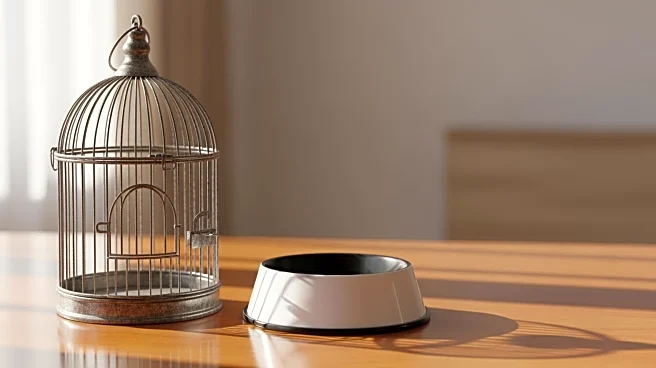What's Happening?
Brigid Shulte, director of the Better Life Lab at New America, emphasizes the mental health benefits of engaging in hobbies. Many adults lack hobbies due to daily pressures, financial issues, or work stress. However, studies indicate that hobbies can significantly improve mental health. Physical activities like pickleball, running, or biking enhance brain function, while relaxing hobbies such as knitting or crocheting reduce stress. Shulte notes that hobbies expose individuals to new experiences, fostering brain connections and providing dopamine boosts. She advocates for leisure time, highlighting the cultural challenges in the U.S. where long work hours and lack of national policies for paid time off hinder hobby development.
Why It's Important?
The discussion around hobbies underscores their potential to improve mental health and overall well-being. In a culture focused on productivity, hobbies offer a necessary respite, allowing individuals to engage in activities purely for enjoyment. This can lead to reduced stress and increased happiness. The lack of national policies supporting leisure time in the U.S. highlights a societal issue where work often takes precedence over personal well-being. Encouraging hobbies can foster a healthier work-life balance, benefiting individuals and society by promoting mental health and reducing burnout.
What's Next?
As awareness of the benefits of hobbies grows, there may be increased advocacy for policies that support leisure time and work-life balance. Organizations might begin to recognize the importance of hobbies in employee well-being, potentially leading to initiatives that encourage hobby development. Individuals may also start prioritizing hobbies, seeking ways to integrate them into their lives despite cultural and systemic barriers.
Beyond the Headlines
The cultural resistance to leisure time in the U.S. reflects deeper societal values that prioritize work over personal fulfillment. This conversation could spark broader discussions about the need for systemic changes to support mental health and well-being. Recognizing hobbies as an act of resistance against a work-centric culture may lead to shifts in how leisure is valued and integrated into daily life.










